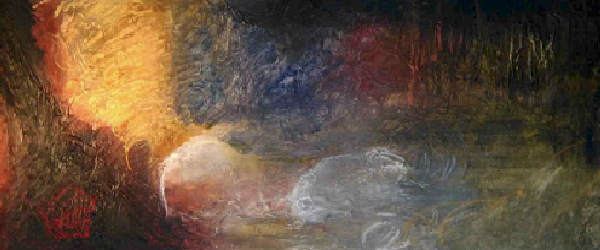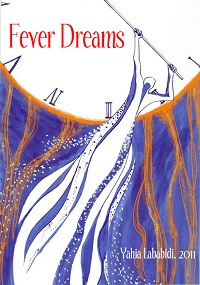
Poetry Review: “Fever Dreams”
Books, ReviewsWhen I pulled Fever Dreams from its shipping pouch, a small note fell from the inside cover. The note invited me to keep “good company” with the author’s dreams. In that note, Yahia Lababidi, author of Trial by Ink, encapsulated an accurate description of his smooth verse.
 Fever Dreams is, ostensibly, a surprisingly lighthearted and blithe book; but it progresses towards an ominous tone in its verse. At points early on, the poetry tends toward examining, even cavorting with abstracts in poems such as “Clouds” and “What do animals dream?”. But abstractions, if not tethered by detail, are difficult to employ in poetry because they loose the reader’s attention. How does Lababidi get away with this? He writes poetry that allows the reader to dream alongside the poem; grounding them in a few details and making them easy to unfurl. Lababidi uses them to create atmosphere.
Fever Dreams is, ostensibly, a surprisingly lighthearted and blithe book; but it progresses towards an ominous tone in its verse. At points early on, the poetry tends toward examining, even cavorting with abstracts in poems such as “Clouds” and “What do animals dream?”. But abstractions, if not tethered by detail, are difficult to employ in poetry because they loose the reader’s attention. How does Lababidi get away with this? He writes poetry that allows the reader to dream alongside the poem; grounding them in a few details and making them easy to unfurl. Lababidi uses them to create atmosphere.
Fever Dreams gains momentum and rebelliousness as the book progresses, delightfully belying nostalgia, fear, anger, or anxiousness. The poetry leans further into minimalist form; the book gains a wealth of metaphor and detail. Lababidi’s poems become taught, tethered and concretized without sacrificing mystery.
Take for example one of this reader’s favorite poems entitled “Hothouse”. Here is a poem that asks the reader to create connections in order to fill the spaces between metaphor, action, and detail. Further, who can resist lines such as, “until someone dares to speak/ without scenting their words first”? How can these lines possibly relate to the title? There are many more imaginative connections in Fever Dreams.
These poems invent a concrete stream of experiences characterized by a subtle pervasive inkling of somnolent hallucination. They hide in a world that simultaneously cautions against and beckons this reader to slip beneath a mantle of fevered dreaming. Fever Dreams is indeed an aptly titled work which keeps good company.
art at top of the page by John Eaton






















